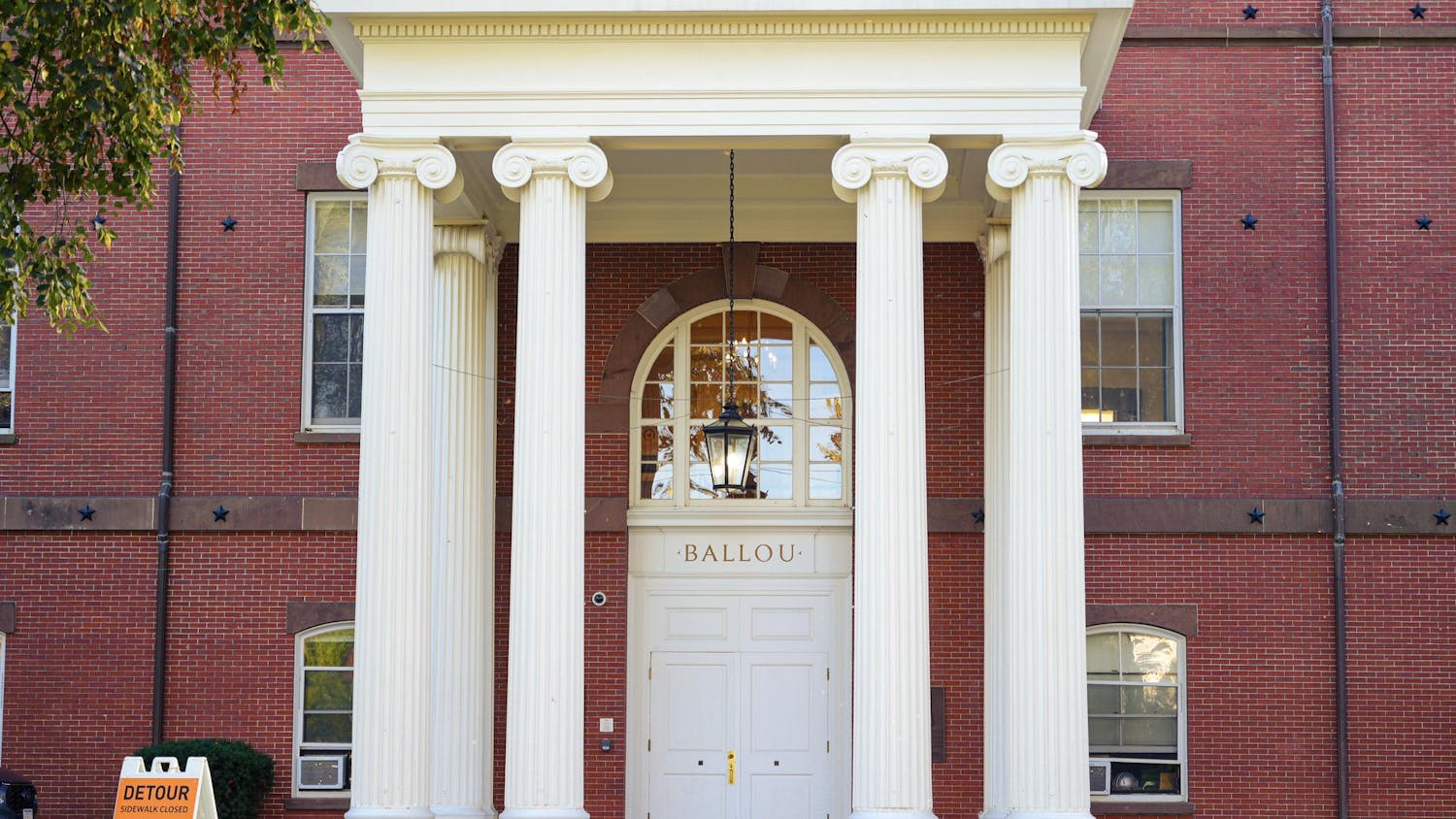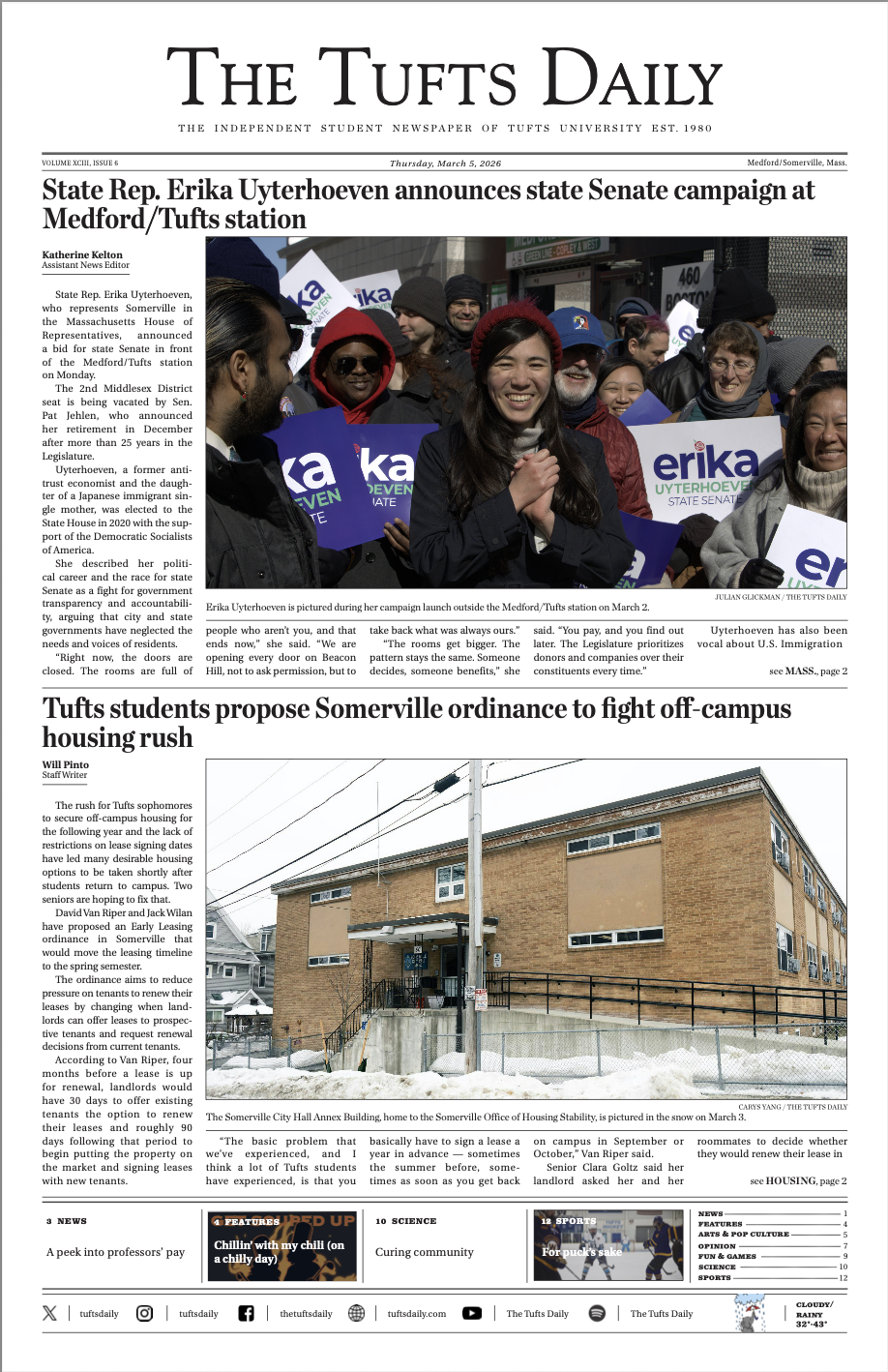The Tufts School of Arts and Sciences decided to terminate the Portuguese minor this fall due to lower than optimal enrollments. The unexpected news was recently announced to Portuguese language students and lecturers, who previously believed that the school would preserve the program.
Following Portuguese Department Head Cristiane Soares’ resignation last spring, the university asked part-time Portuguese lecturer Maria Champlin to act as interim department head while it searched for a full-time professor.
The university also decided to hire a part-time lecturer, Kamilla Silva, until a full-time professor could be hired.
“This opportunity came to teach Portuguese," Silva said. "And knowing that the department was at risk, I quickly jumped [for] the position."
When Silva was hired, it was to her understanding that the Portuguese department would continue to offer the minor.
"The people [Champlin] had spoken to had told her that the department was safe and that the minor was going to continue, they just needed time to hire somebody else to take over the position," Silva said.
Toward the end of September, however, rumors began circulating that the university would stop offering Portuguese classes. According to BR Rose, a student advocating for the preservation of the program, Pedro Ángel Palou, the chair of the Romance studies department, revealed during a Spanish department meeting that while some classes would be kept, the Portuguese minor program would be eliminated.
Champlin and Silva, who are currently the only Portuguese lecturers, were not present during the meeting.
“We heard officially — not from Tufts University — but we heard from people who have said, ‘They've officially decided this,’ and nothing was really said to [Champlin],” Silva said.
Champlin then met with Palou and Dean of Academic Affairs Samuel Thomas, where they confirmed that the university would be ending the minor program, Rose, a junior, said.
Sophomore Roger Burtonpatel explained that students in his Portuguese class were very disappointed when they learned this news.
“This is extremely hard for all of us, I won't pretend that anyone's happy,”Burtonpatel said.
Burtonpatel added that it has been a distraction from class, as students have devoted class time to advocating for saving the program.
The news quickly spread across social media, where junior Sophia Costa learned of cuts to the program.
“I was very infuriated,”Costa said. “And so a couple of us who were involved with the Portuguese program, such as TAs [and] the people who've taken the classes … started this movement that is striving to save and uplift Tufts Portuguese."
With Champlin’s help, Rose, Burtonpatel and Costa decided to rally support for the Portuguese program by spreading awareness about the administration’s decision. A few weeks ago, they created a petition and a list of demands for the administration, including a guarantee that the minor in Portuguese continue at Tufts and an investment in the long-term viability of the Portuguese program by keeping the full-time coordinator position intact. The petition's final demand is that Tufts maintain a part-time lecturer position in the department.
According to Costa, the petition to preserve the program has garnered more than 1,000 signatures. Additionally, dozens of students, faculty and alumni have written testimonials arguing on behalf of the program.
Dean of the School of Arts and Sciences James Glaser, who was involved in the decision to end the Portuguese minor, said that the decision was necessary in terms of using resources effectively.
“We know some students are disappointed, which we understand,”Glaserwrote in an email to the Daily. “However, the school must steward its limited resources wisely, and that means making decisions about how to allocate positions to ensure we are supporting classes and departments that are in high demand.”
Senior Luana Machado, who is currently minoring in Portuguese, rejects the idea that the decision was related to low enrollment.
"They may say that their decision has nothing based on the value of the language, but I think it absolutely does," Machado said. "Their claims that the program is too small … [are] not fair to say, because the program has had the same … numbers since it was opened."
Rose believes that since the department is small, it is not a burden on the university’s resources.
“The thousands of dollars that it would take to keep the Portuguese program alive is a drop in the bucket from the institution’s financial perspective,”Rose said. “The impact that that relatively small financial investment has on the students, on the families of the students and on the broader community is immense and not to be understated in any way, shape or form.”
Glaser added that funding would be allocated for a new position in Romance studies focusing on Afro-Latin and Indigenous literary and cultural studies and that no one will be laid off as a result of this decision.
On students’ concerns that they would be unable to complete their minor, Glaser clarified that the department will continue to offer Portuguese language courses through the 2022–23 academic year to allow students who have already begun the sequence to finish it for the purposes of satisfying the language requirement.
Students and professors say that the Portuguese program also helps bridge the Tufts community with the Portuguese-speaking population in Somerville and Medford.
“Tufts makes a lot of efforts to talk about the relationship with the host community," Rose said, highlighting the Portuguese in the Community course, which allows students to engage and intern with Portuguese- and Brazilian-facing organizations in the surrounding communities. "A lot of these organizations have long standing relationships with Tufts, so these leaders have been really, really shocked," Rose said.
Beyond its cultural importance, Soares also highlighted the academic and professional significance of Portuguese classes.
“[Students] are not taking Portuguese because they want to spend two weeks in Rio de Janeiro," Soares said. "They see that Portuguese has a very important impact on their academic interests, in their professions [and in] their fields."
Soares said that instead of reducing funding for the Portuguese program, Tufts should give the department more funding to attract new students.
“The reason why we don't have more students is not because the program is not working,”Soares said. “It's just because we don't have enough resources to make the program grow.”






